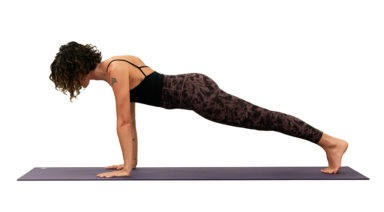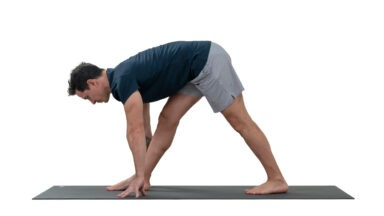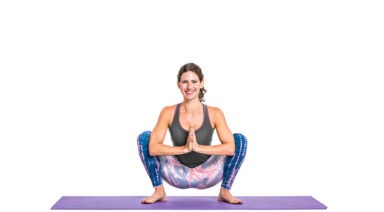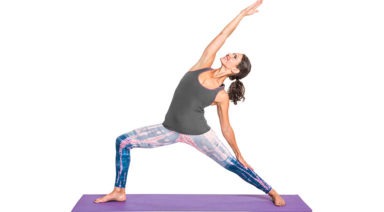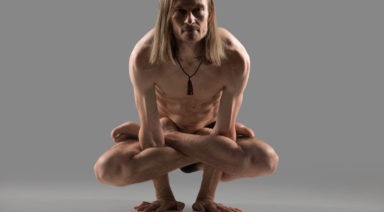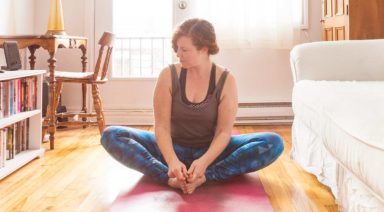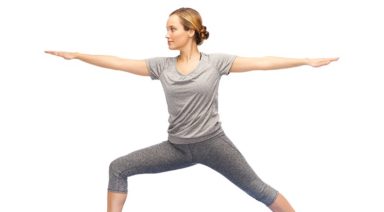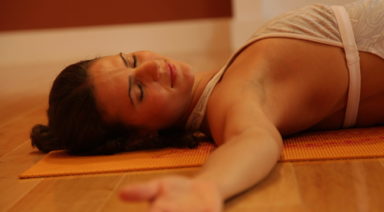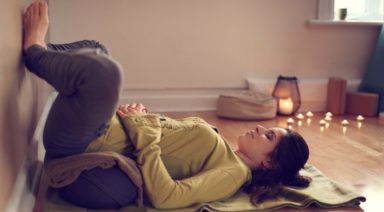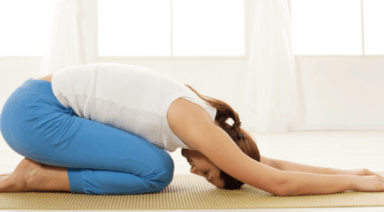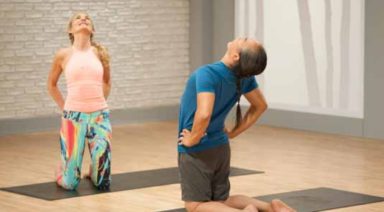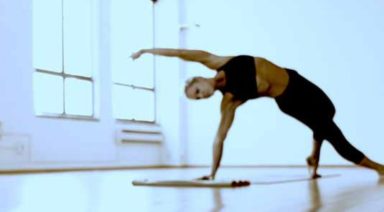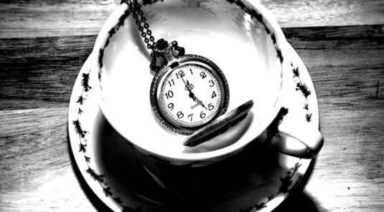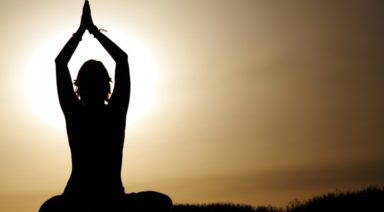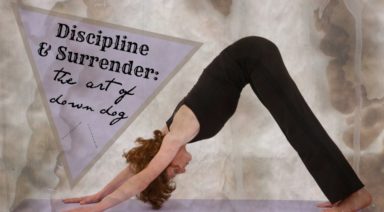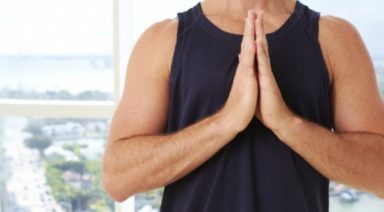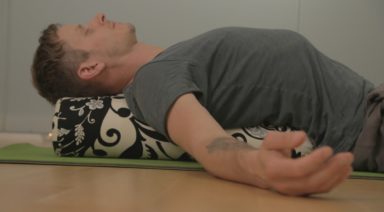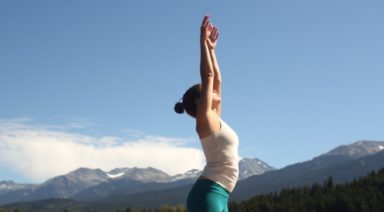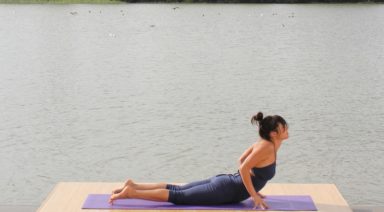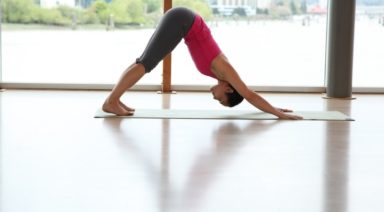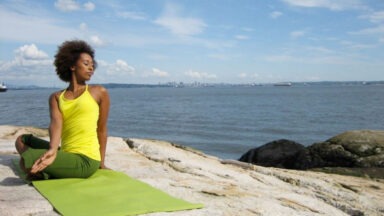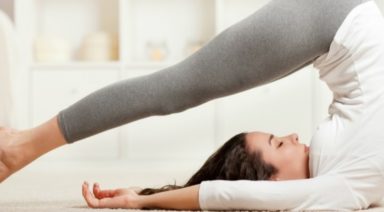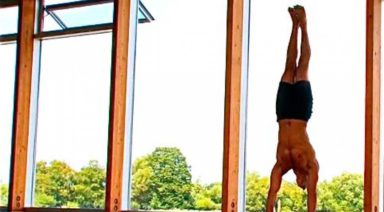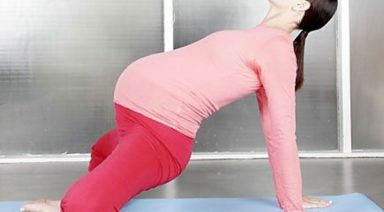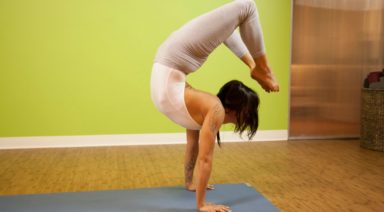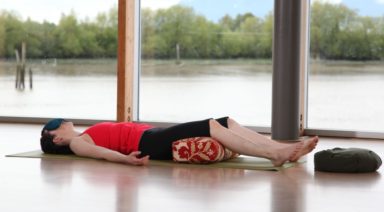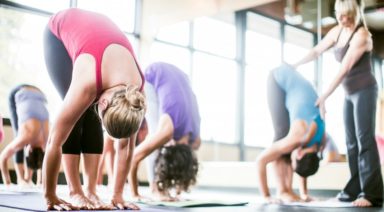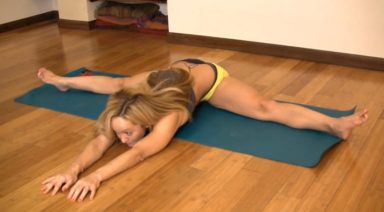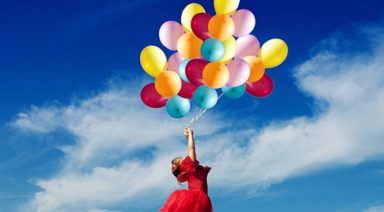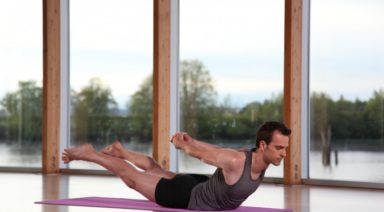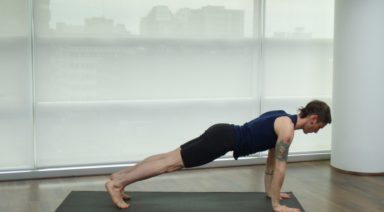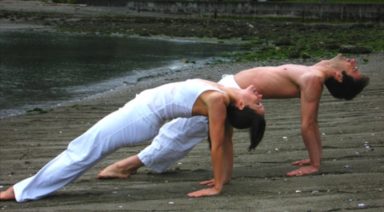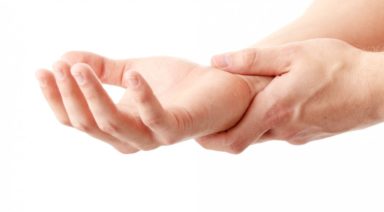Purvottanasana: Reverse Plank Pose

Purvottanasana (PUR-voh-tah-NAH-sah-nah) is a sibling of bridge pose and plank pose. Reverse plank may look intimidating for the shoulders, but there are several variations of the pose, all of which can help open the front of the body while strengthening the back.
Philosophy and Origin:
This pose goes by many names including “reverse plank,” and “upward-facing plank” pose. The Sanskrit name translates to “intense east stretch.” Ancient yogis considered the front of the body to be the “east” side as yoga was practiced while facing the rising sun.
Sanskrit:
- Purva: east
- Ut: intense
- Tan: stretch
- Asana: pose
Physical Benefits:
- Opens the chest and shoulders.
- Builds and tones the core muscles.
- Counters forward-facing tasks like sitting at a desk, driving, and looking at a phone.
Energetic Benefits:
- Releases tension from the body.
- Relieves fatigue and stress.
Preparatory Poses:
- Camel pose | Ustrasana
- Bridge pose | Setu bandhasana
- Plank pose | Phalakasana
Sequential Poses:
- One-legged reverse plank | Eka pada purvottanasana
- Upward-facing bow pose | Urdhva dhanurasana
Counter Poses:
- Half lord of the fishes | Ardha matsyendrasana
- Seated forward fold | Paschimottanasana
- Childs pose | Balasana
Adjustments/Modifications:
- Use a block: Build inner core strength by placing a block in between your thighs, then squeeze the block as you lift into the pose.
- Half reverse plank: Place the soles of your feet on the ground with knees bent for a variation of full reverse plank.
Step-By-Step:
- Begin seated with your legs out in front of you.
- Reach through the ball mounds of your feet, halfway between pointed and flexed.
- Place your hands behind you, fingertips pointing toward your hips. Roll your shoulders behind you.
- Press into your palms and through the ball mounds of your feet. Exhale to lift your hips off the ground, tailbone pointing toward your heels.
- Lift your heart. Option to lift your gaze to the ceiling.
- Hold for five breaths, then release hips to the ground.
###Legal Disclaimer Before participating in any exercise program or using any fitness products or services that may be described and/or made accessible in or through the Gaia Website and/or the Services, you should consult with a physician or other healthcare provider. Read more about Gaia’s Terms Of Use.
Phalakasana: Plank Pose
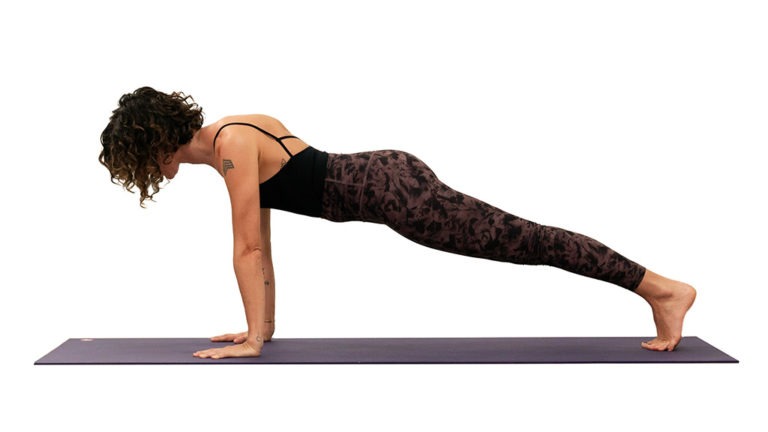
ADJUSTMENTS | BENEFITS | SEQUENCING | SANSKRIT | STEPS
Phalakasana (fall-ack-AHS-anna), is an essential posture for a strong yoga practice. Holding plank pose will improve your endurance and muscle tone, help develop the strength needed for more complex poses, and generate heat and stimulating the navel chakra.
Philosophy + Origin
Hidden in the pose’s name is the Sanskrit word “phala,” which means to bear fruit or ripen. In yoga, the idea of tapas, often translated as “heat,” “passion,” or “discipline,” fuels the physical asana practice, encouraging students to seek out the challenge again and again in order to become stronger, to build an internal flame in the body that fuels every aspect of life. When you think of plank pose as an opportunity to “ripen” or “bear fruit,” you become aware of the transformative effect of this seemingly simple (although challenging) pose. Each time you enter the pose, use the breath to ripen the fruit of your labors. The ability to hold this pose with steadiness and grace is known to create major shifts in your practice and your life.


